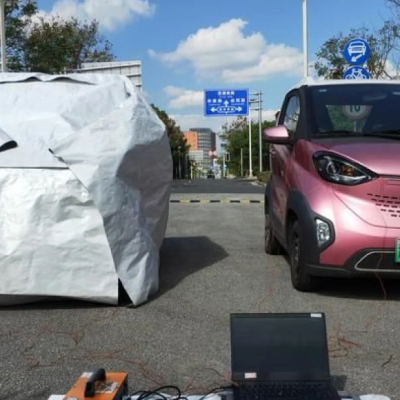Germany is facing a funding gap due to the rise of electric cars and the subsequent loss of revenue from the mineral oil tax. To address this issue, a new study by the think tank Agora Verkehrswende suggests implementing a distance-based road toll of 5.4 cents per kilometer on all roads and highways. The toll would generate an estimated 33 billion euros in revenue by 2030, with the first stage of the toll set at 2.6 cents per kilometer in 2025. The study also recommends using half of the revenue to invest in public transportation, cycling and pedestrian infrastructure, and noise reduction measures.
Currently, a significant portion of Germany’s road infrastructure is funded by the mineral oil tax. However, as more electric cars are sold, this revenue stream will decrease, creating a funding gap that needs to be addressed. The proposed distance-based road toll would not only generate revenue but also have a positive impact on the environment by encouraging the use of more sustainable modes of transportation.
The study also suggests that the toll could be adjusted based on factors such as vehicle weight and emissions, with heavier and more polluting vehicles paying a higher toll. Additionally, the toll could be increased during peak traffic times to reduce congestion. The revenue generated from the toll would be used to invest in public transportation, cycling and pedestrian infrastructure, and noise reduction measures, with half of the revenue going towards these initiatives.
Overall, the proposed distance-based road toll in Germany would not only address the funding gap caused by the rise of electric cars but also encourage more sustainable modes of transportation and reduce congestion. The study’s recommendations for investing half of the revenue in public transportation, cycling and pedestrian infrastructure, and noise reduction measures would also have a positive impact on the environment and quality of life for residents.










